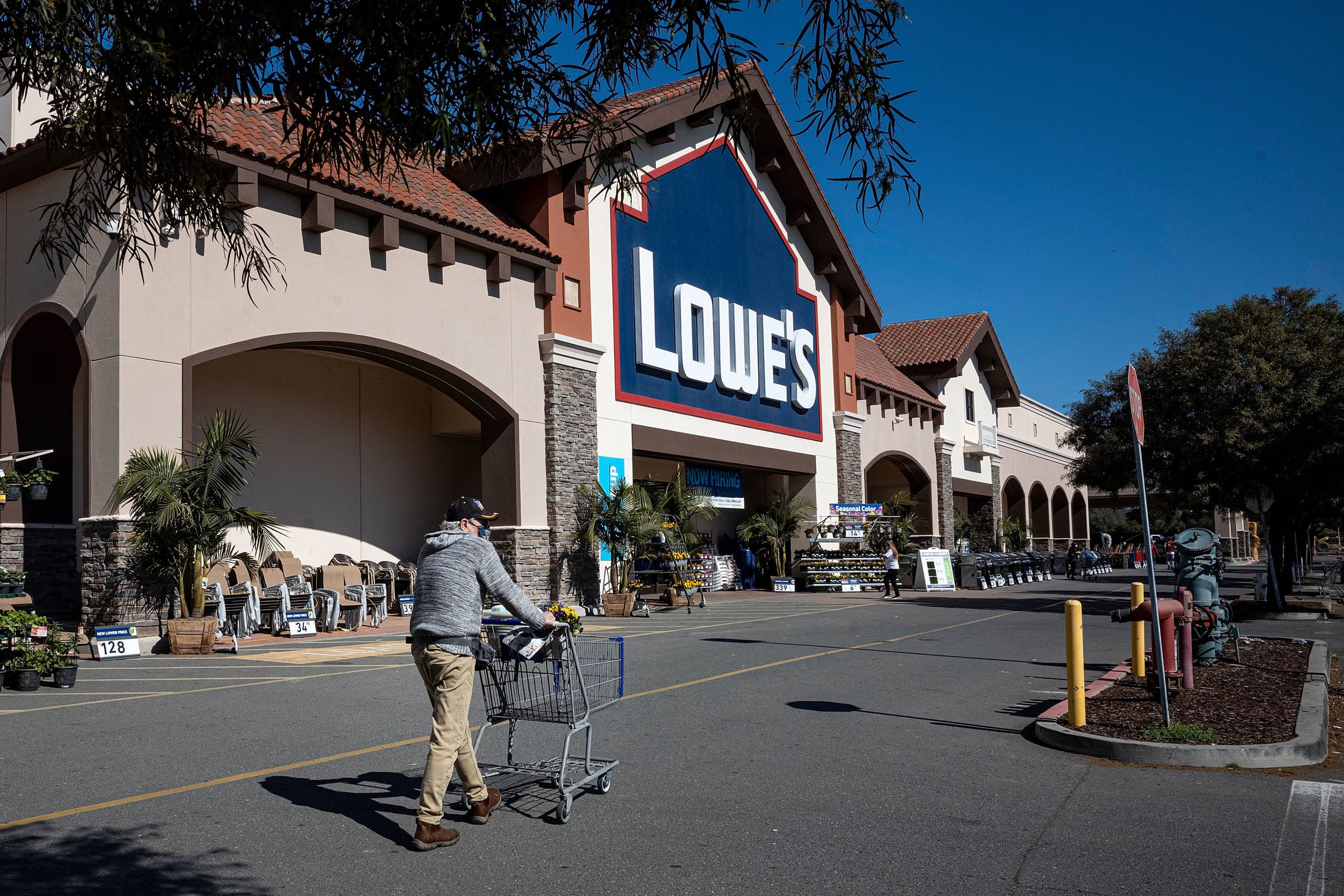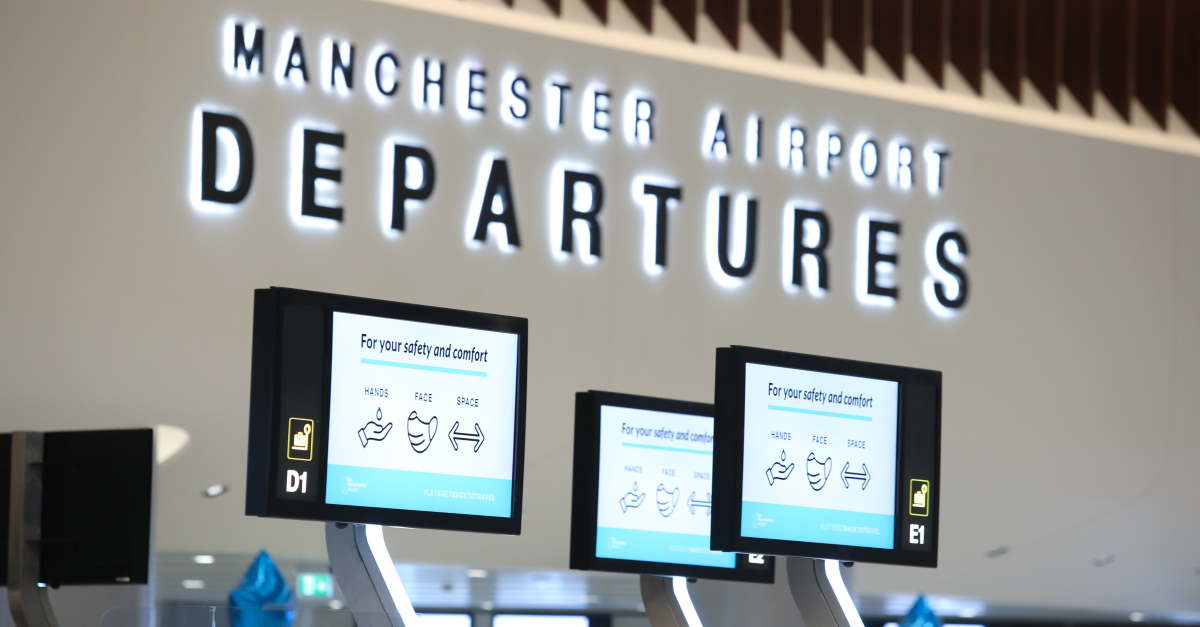Lowe's raises its earnings forecast as a tight housing market, older homes fuel projects
Lowe's raised its forecast for the full year and surpassed Wall Street's earnings estimates for the fiscal fourth quarter.

Lowe's on Wednesday surpassed quarterly earnings expectations and raised its forecast for the year, as Americans buy, fix up and renovate homes in a tight real estate market.
The company's shares rose more than 5% in early trading, as the home improvement retailer said momentum carried into February.
Aging houses, rising real estate values and generational trends are fueling demand for home projects. Americans — including millennials, the country's largest generation — have been buying houses and upgrading to bigger ones during the coronavirus pandemic. That has depleted the supply of available homes and inspired some to hire contractors to redo a bathroom, replace a roof or take on other similar projects.
Those dynamics have lifted sales for Lowe's and competitor Home Depot.
"When home prices go up, consumers have confidence to invest in their homes," Lowe's CEO Marvin Ellison said Wednesday morning on CNBC's "Squawk Box."
He said repair and maintenance projects will drive spending, even as prices rise from inflation and a mortgage rate hike looms. About half of the country's single-family homes were built before 1980, according to data from the Federal Home Loan Mortgage Corp.
Here's what Lowe's reported for the quarter ended Jan. 28 compared with what Wall Street was expecting, based on a survey of analysts by Refinitiv:
Earnings per share: $1.78 vs. $1.71 expectedRevenue: $21.34 billion vs. $20.90 billion expectedIn the fourth quarter, Lowe's net income rose to $1.21 billion, or $1.78 per share, from $978 million, or $1.32 per share, a year earlier. The results were above the $1.71 expected by analysts surveyed by Refinitiv.
Sales climbed to $21.34 billion from $20.31 billion last year and outpaced analysts' expectations of $20.90 billion.
Lowe's same-store sales in the U.S. increased 5.1% in the fourth quarter, as customers made fewer trips to the company's website and stores but spent more when they did.
A year ago, Ellison said the mix of purchases looked different as shoppers bought cleaning products and supplies for simple do-it-yourself projects. Now, major projects are driving a larger share of purchases.
Transactions in the U.S. fell 4.4% in the fourth quarter compared with the year-ago period. Ellison said sales of big-ticket items that cost at least $500 grew 15.6% in the quarter. The average ticket at U.S. stores and on Lowe's website rose 9.5% to $95.66 in the fourth quarter, partially due to inflation.
Sales from home professionals jumped 23% in the three-month period, too. The pros tend to be steadier and more lucrative customers.
Lowe's has historically drawn about 20% to 25% of its total sales from pros compared with Home Depot, which gets about half of its sales from them. Lowe's has been chasing pros, however, with a new loyalty program and perks like reserved parking and free air for tires at its stores.
Pro sales are growing for another reason, too. As the omicron variant recedes and schedules get busier again, some people are hiring contractors rather than taking on DIY projects.
Like other retailers, Lowe's is seeing costs rise and chasing inventory due to supply chain delays. Inflation drove about half of Lowe's sales increase in the second half of the year, Ellison said in a separate interview.
In some categories, such as appliances, he said Lowe's has expanded its portfolio of merchandise, so shoppers have a wider variety if an item is out of stock.
"You may not get the exact brand you want, but if you're looking for a stainless steel, French door refrigerator, we're going to have that model for you," he said. "It just may not be in the specific brand that you wanted when you came in."
Ellison said the retailer is working closely with suppliers, sourcing more products from the U.S. and importing inventory from other countries. It opened coastal holding distribution centers on the East and West Coast where it can store products from other parts of the globe rather than ordering just-in-time — an approach that can help retailers' balance sheets, but make them vulnerable if ports are temporarily shuttered or congested.
He said Lowe's already has its inventory in the U.S. as it gears up for spring, its busiest season. As the weather warms, it will ship merchandise from the coastal holding facilities to regional distribution centers and then stores.
"It's an extra step, but that extra step has given us the ability to have a better in-stock position than most of our competitors," he said.
The retailer said it expects earnings per share to range from $13.10 to $13.60 on revenue of $97 billion to $99 billion to in fiscal 2022. It had previously forecast earnings per share of $12.94 on revenue of $97 billion for the year, which is a week longer than fiscal 2021.
It said same-store sales will range from a decline of 1% to an increase of 1% for the full year.
As of Tuesday's close, Lowe's shares are up 27% over the past 12 months. Shares closed Tuesday at $214.59, bringing Lowe's market value to $144.58 billion.

 BigThink
BigThink 





























